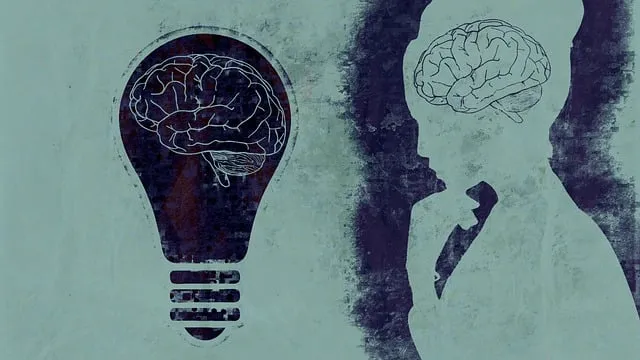Northglenn's Crisis Intervention Teams (CITs), supported by the Kaiser Permanente behavioral health phone number, are transforming mental health crisis management. These teams combine trained volunteers/professionals to offer immediate support, de-escalation, and long-term care connections. Through evidence-based training, including mindfulness, role-playing, and holistic workshops, CITs enhance community safety, reduce ER visits (especially among vulnerable groups), and promote proactive risk management for mental health professionals. Continuous education, peer support, and mentorship ensure CIT effectiveness and foster a resilient Northglenn community.
Crisis intervention teams (CITS) play a vital role in communities, providing immediate support during crises. This article explores the significance of CIT training programs, focusing on the successful implementation in Northglenn, where a dedicated team has made a tangible impact. We delve into essential components of effective training, highlighting the Kaiser Permanente Behavioral Health Phone Number as a critical resource. Real-world applications and continuous education strategies are examined to enhance community preparedness, especially in response to challenges faced in Northglenn.
- Understanding Crisis Intervention Teams: Their Role and Impact in Northglenn
- Kaiser Permanente Behavioral Health Phone Number: A Key Resource for Training
- Essential Components of Effective Crisis Intervention Team Training Programs
- Real-World Applications: Success Stories from Northglenn's Community
- Enhancing Preparedness: Continuous Education and Support for Crisis Teams
Understanding Crisis Intervention Teams: Their Role and Impact in Northglenn

In Northglenn, Crisis Intervention Teams (CITs) play a pivotal role in addressing mental health crises and enhancing community safety. These specialized teams, often composed of trained volunteers or professionals from various backgrounds, are equipped to handle situations involving individuals experiencing severe emotional distress, including anxiety relief, suicidal ideation, or psychotic episodes. The primary objective of CITs is to de-escalate crises promptly, provide immediate support, and connect individuals with appropriate long-term care, such as those offered by the Kaiser Permanente behavioral health phone number Northglenn residents can access.
By integrating CITs into the local response framework, Northglenn has taken a proactive step towards better risk management planning for mental health professionals. This approach not only improves public awareness campaigns development but also ensures that crisis responders are equipped to handle a diverse range of mental health challenges. Through their interventions, CIT members foster understanding and empathy, aiming to reduce the stigma associated with mental illness while promoting effective strategies for managing and preventing future crises.
Kaiser Permanente Behavioral Health Phone Number: A Key Resource for Training

For those seeking comprehensive training in crisis intervention, the Kaiser Permanente Behavioral Health Phone Number in Northglenn stands as a valuable resource. This dedicated line offers access to expert guidance and support, catering specifically to individuals aiming to enhance their skills in managing mental health crises. Whether you’re a healthcare provider looking to improve cultural competency or someone interested in learning effective self-care practices, the phone number connects you with professionals who can tailor advice based on your unique needs.
By leveraging this resource, participants can engage in discussions that span various topics, including coping skills development and strategies for de-escalating tense situations. The team at Kaiser Permanente Behavioral Health is committed to fostering a supportive environment where individuals from diverse backgrounds can gain insights, share experiences, and collectively enhance their ability to respond effectively during moments of crisis.
Essential Components of Effective Crisis Intervention Team Training Programs

Effective crisis intervention team (CIT) training programs are multifaceted, designed to equip healthcare professionals with the skills needed to respond to individuals in acute distress. A comprehensive program incorporates several key components, ensuring that teams are well-prepared to handle a range of crises.
Firstly, these programs must emphasize evidence-based practices and provide ongoing education and support. This includes training in de-escalation techniques, active listening, and trauma-informed care, which form the foundation for effective CIT interventions. Incorporating role-playing scenarios and simulations allows participants to apply these skills in realistic settings. Additionally, integrating Stress Management Workshops, Mental Wellness Journaling Exercises, and Trauma Support Services guidance enables teams to offer holistic support tailored to individual needs. The Kaiser Permanente behavioral health phone number Northglenn can serve as a valuable resource for ongoing training and consultation, fostering a culture of continuous improvement within CIT programs.
Real-World Applications: Success Stories from Northglenn's Community

In Northglenn, a small town in Colorado, a unique crisis intervention team training program has been making waves, offering tangible solutions to community members struggling with mental health and emotional crises. The initiative, spearheaded by local organizations including Kaiser Permanente behavioral health phone number Northglenn, has proven to be a game-changer for residents. This innovative approach combines intensive training in stress reduction methods, such as mindfulness meditation, with practical strategies for emotional regulation.
Through interactive workshops and real-world applications, participants gain the skills needed to support not only themselves but also their neighbors. Success stories abound, with individuals previously reliant on emergency room visits now equipped to manage and prevent crises. The program’s impact extends beyond individual transformation; it fosters a sense of community resilience, where members are empowered to navigate emotional challenges together, creating a safer and more supportive environment for all, especially during times of heightened stress and distress.
Enhancing Preparedness: Continuous Education and Support for Crisis Teams

Continuous education and support are vital components in enhancing the preparedness of crisis intervention teams. Regular training sessions help team members stay updated with the latest research, techniques, and best practices in behavioral health. This includes mastering Emotional Well-being Promotion Techniques and Stress Reduction Methods to effectively assist individuals during crises. By fostering a culture of learning, teams can better navigate complex situations and provide timely interventions.
Additionally, ongoing support networks play a crucial role in maintaining team resilience. Similar to Depression Prevention initiatives, peer support groups and mentorship programs ensure that crisis responders have access to emotional support and practical guidance. Such measures are particularly relevant for those working with vulnerable populations, such as the Kaiser Permanente behavioral health phone number Northglenn serves. Regularly reinforcing these support systems contributes to a more robust and responsive crisis intervention team.
Crisis intervention team (CIT) training programs play a vital role in equipping communities with the tools to manage mental health crises effectively. As demonstrated by Northglenn’s successful implementation, these programs can significantly enhance the well-being of individuals in need and reduce the strain on emergency services. The Kaiser Permanente behavioral health phone number serves as a valuable resource for accessing training resources, ensuring that citizens of Northglenn have easy access to support. By continuously educating and supporting crisis teams, we can foster a more resilient community where mental health crises are met with compassion and competence.






